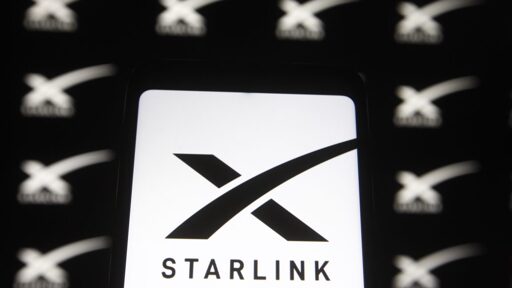Starlink operator SpaceX is fighting Virginia’s plan to deploy fiber Internet service to residents, claiming that federal grant money should be given to Starlink instead. SpaceX is already in line to win over $3 million in grant money in the state but is seeking $60 million.
Starlink is poised to benefit from the Trump administration rewriting rules for the $42 billion Broadband Equity, Access, and Deployment (BEAD) grant program. While the Biden administration decided that states should prioritize fiber in order to build more future-proof networks, the Trump administration ordered states to revise their plans with a “tech-neutral approach” and lower the average cost of serving each location.



As much as I dislike the muskrat, is this fiber actually real?
ISPs in US have been given billions of dollars, multiple times to bring Fiber out and each time they’ve pocketed the cash and done nothing.
Starlink at the very least, exists.
If this is going to counties and cities to build out municipal fiber, then screw StarLink.
If this is going to AT&T, again, for the fourth time to build this fiber, then no, give it to StarLink since AT&T will never actually build out that service, fourth time is not the charm.
I take umbrage with StarLink’s notion that Fiber is slow to build out though - the single biggest expense and time consuming part of rolling out a GPON network is getting it from the street to inside a premesis.
Guess which part StarLink still has to do and it isn’t any cheaper…
I have fiber internet. I don’t understand this question. Are you suggesting that nowhere in the US has this technology? Like. This situation (where a private company sues a state, county, municipality etc to stop the rollout of fiber internet (or even another private company) happens so frequently that it’s unreal.
There’s plenty of places that already have fiber. And those private companies for the most part want to continue growing that user base by rolling out fiber in new markets.
And if it’s the state actually controlling the rollout that’s better than them just paying a private company to do it? If this weren’t a threat to Musk and Starlink he would t be suing.
I got fiber last year. It halved my bill and quadrupled my throughput. It’s real, and since then another vendor arrived and is competing with the one i have. This is hiw it is supposed to work.
I’m not sure why people are commenting that I think fiber isn’t real?
Of course it’s real.
But maybe you’re young- Comcast, AT&T, etc, have been given multiple tranches of money since the early 1990s to deliver a nationwide fiber network in the US, they’ve never delivered more than 0.1% of it.
Giving them more money, won’t make it happen.
Giving municipalities (cities, counties) the funds to build out their own fiber networks is good.
Giving more money to Comcast and AT&T to do nothing, is not good, it’s corporate welfare.
I think you’re low key conflating 2 different issues here.
When it comes to technology of fiber vs low orbit satellites fiber will always win in every circumstance that isn’t a battle field or an ocean. It’s one of those technologies that we really nailed. Combined with cell towers we can tap ourselves on the back and say “yay we solved internet” very convincingly.
There’s literally nothing in current practical physics that can match this latency and bandwidth and cost ration. Just try to do napkin math of how many low orbit satellites we’d need to cover today’s bandwidth and latency requirements and we will literally never need less than what we need today unless the world ends.
Now whether corruption has a role here sure - but you sure your trusting SpaceX more when its literally on the news right now for bait and switching the pause feature. There’s no basis of thinking that Starlink would somehow be less corrupt. In fact, it seems like hiding corruption here would be much easier for starlink with feature changes and priority lanes than literal “cable is here or cable is not here”.
Isn’t fiber also winning on battlefields now because it’s resistant to jamming?
BEAD funds are more or less administered by the state, and nothing is fundementally stopping them from doing the right thing and preferring local bids.
It’s entirely possible too, look at North Dakota, it has near 100% fiber coverage for the entire state, because the same model that brought electrification to them brought them fiber. In Utah and surrounding states there are municipal networks building out to member cities.
The real threat is the states capitulating to the incumbent providers like Comcast – but at least it’s a State level issue instead of being totally a given at the federal level.
…